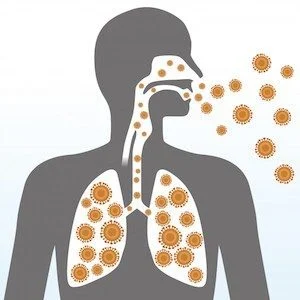Patients with Middle East Respiratory Syndrome (MERS) develop more severe critical illness and have higher mortality than patients with non-MERS severe acute respiratory infection (SARI), according to a study presented at the American Thoracic Society 2016 international conference by investigators from Saudi Arabia, where 80 percent of confirmed cases of MERS have occurred.
The investigators, led by Yaseen Arabi, MD, chairman, Intensive Care Department, and professor, College of Medicine, King Saud bin Abdulaziz University for Health Sciences and King Abdullah International Medical Research Center, Riyadh, Saudi Arabia collected data from 14 hospitals in 4 cities in Saudi Arabia and compared critically ill patients with laboratory-confirmed MERS to those admitted with SARI of non-MERS aetiology between September 2012 and September 2015.
See Also: Middle East Respiratory Syndrome Coronavirus (MERS-CoV) Infection: The ICU Response
299 MERS patients with SARI were compared with 218 patients with SARI only. Patients with MERS were younger (median age, 58 years) compared with non-MERS patients (median age, 70 years). Chronic co-morbidities were common in both groups: chronic cardiac disease was less frequent in MERS patients, but chronic renal disease was more common. MERS patients had more fever (71 percent vs 41 percent p=0.001). Symptoms such as cough, shortness of breath and sputum production were similar.
"Patients with MERS were more likely to be hypoxaemic and to require invasive mechanical ventilation (85 percent versus 73 percent, p = 0.001), vasopressor therapy (77 percent versus 55 percent, p = 0.001) and renal replacement therapy (47 percent versus 23 percent, p = 0.001)," the investigators say. Mortality was higher in MERS versus non-MERS patients (70 percent versus 36 percent, p = 0.001).
Due to the overlap in clinical presentation and co-mortalities among patients with MERS and SARI of other aetiologies, diagnostic testing is essential, they conclude.
Source and image credit: American Thoracic Society
The investigators, led by Yaseen Arabi, MD, chairman, Intensive Care Department, and professor, College of Medicine, King Saud bin Abdulaziz University for Health Sciences and King Abdullah International Medical Research Center, Riyadh, Saudi Arabia collected data from 14 hospitals in 4 cities in Saudi Arabia and compared critically ill patients with laboratory-confirmed MERS to those admitted with SARI of non-MERS aetiology between September 2012 and September 2015.
See Also: Middle East Respiratory Syndrome Coronavirus (MERS-CoV) Infection: The ICU Response
299 MERS patients with SARI were compared with 218 patients with SARI only. Patients with MERS were younger (median age, 58 years) compared with non-MERS patients (median age, 70 years). Chronic co-morbidities were common in both groups: chronic cardiac disease was less frequent in MERS patients, but chronic renal disease was more common. MERS patients had more fever (71 percent vs 41 percent p=0.001). Symptoms such as cough, shortness of breath and sputum production were similar.
"Patients with MERS were more likely to be hypoxaemic and to require invasive mechanical ventilation (85 percent versus 73 percent, p = 0.001), vasopressor therapy (77 percent versus 55 percent, p = 0.001) and renal replacement therapy (47 percent versus 23 percent, p = 0.001)," the investigators say. Mortality was higher in MERS versus non-MERS patients (70 percent versus 36 percent, p = 0.001).
Due to the overlap in clinical presentation and co-mortalities among patients with MERS and SARI of other aetiologies, diagnostic testing is essential, they conclude.
Source and image credit: American Thoracic Society
Latest Articles
MERS, mortality
Patients with Middle East Respiratory Syndrome (MERS) develop more severe critical illness and have higher mortality than patients with non-MERS severe acute respiratory infection (SARI), according to a study presented at the ATS 2016 international confer






